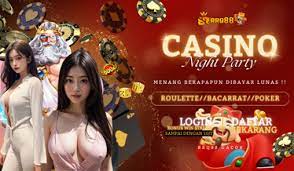Casinos have long been synonymous with glamour, excitement, kapuas 88 and the thrill of chance. Whether you’re drawn to the spinning roulette wheel, the clinking of slot machines, or the strategic play of card games like poker and blackjack, there’s an undeniable allure to the world of gambling. However, beneath the surface of flashing lights and ringing bells lies a complex ecosystem of psychology, economics, and probability.
The Allure of the Casino
Walking into a casino is an experience like no other. The atmosphere is charged with anticipation, and the possibilities seem endless. The allure of winning big is intoxicating, drawing people from all walks of life to try their luck. For some, it’s a casual pastime, a way to unwind and socialize with friends. For others, it’s a serious pursuit, a chance to test their skill and strategy against the house.
The Games of Chance
At the heart of every casino are the games themselves, each designed to offer a unique blend of skill and luck. Slot machines, with their colorful themes and enticing sound effects, are the most ubiquitous feature of any casino floor. They appeal to our instinctual desire for instant gratification, offering the tantalizing possibility of a jackpot with just the pull of a lever.
Table games like roulette, blackjack, and craps offer a more interactive experience, requiring players to make strategic decisions that can influence the outcome of each round. From calculating odds to reading the body language of opponents, these games reward both skill and intuition.
The House Edge
Behind every game in the casino is the concept of the house edge – the statistical advantage that the casino has over the players. While individual outcomes may be unpredictable, over the long run, the odds are always in favor of the house. This built-in advantage ensures that casinos remain profitable, even as they pay out winnings to lucky patrons.


